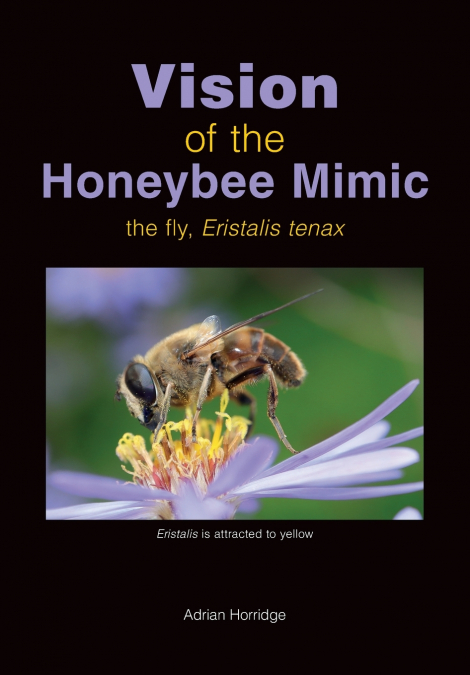
Adrian Horridge
Among the fly family Syrphidae are many examples of bee mimics, mostly of the genus Eristalis, among which we found the world-wide common dronefly, Eristalis tenax, most convenient for detailed study, as there is no sting. As would be expected for a fly, the eye is much larger than that of the honeybee.Our analysis revealed it as a typical fly visual system with some specialised differences related to detection of movement and foraging among flowers for nectar. Eristalis does not mimic the honeybee in any way except appearance. The life histories are totally different. Eristalis has an aquatic larva that lives in nutritious rubbish, in which it has travelled independently around the world in bilge water of ships.